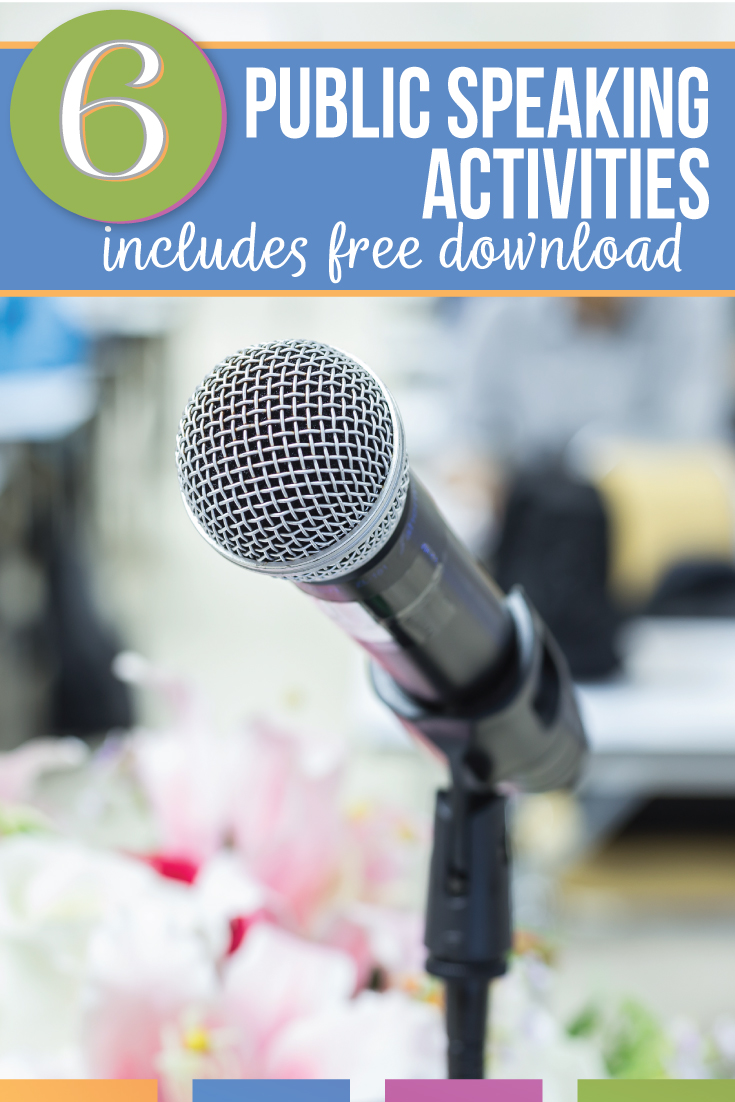How to Not Get Nervous When Speaking (Uncommon Advice for Speaking Up Without Freaking Out)
Take deep breaths and focus on your message, not yourself. Visualize a calm, successful presentation.
Public speaking can be nerve-wracking, but uncommon strategies can help. One effective method is to engage in mindfulness exercises before speaking. This practice helps reduce anxiety and increases focus. Another tip is to shift your focus from yourself to the value you’re providing your audience.
By concentrating on delivering useful information, you can diminish self-consciousness. Additionally, rehearsing in front of a mirror can build confidence and improve delivery. These unconventional techniques, combined with traditional preparation, can make speaking in public less daunting and more enjoyable. With practice, anyone can master the art of speaking without fear.
Mastering Mindset
Mastering your mindset is crucial for speaking without nerves. It’s about changing how you think and feel. This section provides unique tips to help you speak confidently.
Positive Visualization
Positive visualization can transform your speaking experience. Imagine yourself delivering a great speech. Visualize every detail clearly.
- Picture the audience smiling and nodding.
- See yourself speaking confidently and calmly.
- Feel the success and pride in your mind.
Practice this visualization daily. It will help you build confidence. The more you visualize, the less nervous you’ll feel.
Embrace Imperfection
Everyone makes mistakes. Embrace your imperfections. They make you human and relatable.
| Perfectionist Mindset | Embracing Imperfection Mindset |
|---|---|
| Fears making mistakes | Accepts mistakes as learning |
| Strives for perfect delivery | Aims for genuine connection |
| Feels anxious about flaws | Feels relaxed and authentic |
Focus on connecting with your audience. Speak from the heart. Your authenticity will shine through.
Remember, even seasoned speakers aren’t perfect. They embrace their flaws and keep going. Do the same, and your fear will fade.
Physical Preparation
Do you feel nervous when speaking in public? Physical preparation can help you stay calm. Simple actions like breathing exercises and power poses can make a big difference.
Controlled Breathing
Controlled breathing is a powerful tool. It helps calm your mind and body.
- Inhale slowly through your nose for four seconds.
- Hold your breath for four seconds.
- Exhale slowly through your mouth for six seconds.
Repeat this pattern until you feel more relaxed. This technique lowers your heart rate and reduces anxiety.
Power Poses
Power poses can boost your confidence. They change your body language and make you feel stronger.
- Stand tall with your feet apart and hands on your hips. This is called the Wonder Woman pose.
- Raise your arms in a V shape above your head. This is the Victory pose.
Hold these poses for two minutes. You’ll feel more powerful and ready to speak.
Remember, physical preparation is key. These techniques can make you feel calm and confident.
Harnessing Technology
In today’s digital age, harnessing technology can help reduce speaking anxiety. Leveraging modern tools can transform your public speaking experience. Below are some uncommon tips to help you speak up confidently using technology.
Virtual Practice
Virtual practice is a game-changer for aspiring speakers. Platforms like Zoom or Skype allow you to simulate real-life speaking events. This can help you get comfortable with the format and reduce anxiety.
Here are some steps to get started:
- Set up a virtual meeting with friends.
- Choose a topic to discuss.
- Practice your speech in this simulated setting.
Practicing in a virtual environment can build confidence. It lets you familiarize yourself with the tech and real-time feedback. This makes the actual event feel less intimidating.
Recording Yourself
Recording yourself is another powerful technique. Use your smartphone or webcam to record your practice sessions. This allows you to review your performance and identify areas for improvement.
Follow these steps for recording:
- Choose a quiet location.
- Set up your recording device.
- Deliver your speech as if in front of a live audience.
- Watch the recording and take notes.
Recording helps you spot nervous habits you might not notice otherwise. This includes filler words, body language, and pacing. Correcting these can make you a more polished speaker.
Using these technology-based methods can significantly reduce anxiety. Embrace these tools to enhance your public speaking skills.
Unique Practice Methods
Feeling nervous while speaking is common. But unique practice methods can help you. These methods make you confident and relaxed. They are fun and engaging. Let’s explore some of these methods.
Improv Exercises
Improv exercises can boost your speaking skills. They teach you to think quickly. Here are some fun exercises:
- Yes, And…: Build on what others say. This keeps the flow going.
- One-Word Story: Create a story with friends. Each person adds one word.
- Character Switch: Act as different characters. This helps in adapting quickly.
These activities make speaking less scary. They help you enjoy the process.
Storytelling Techniques
Storytelling makes your speech interesting. It helps people connect with you. Try these techniques:
- Start with a Hook: Grab attention with a surprising fact or question.
- Use Vivid Descriptions: Paint a picture with your words. Make your audience see, hear, and feel.
- Include Emotions: Share your feelings. This makes your story relatable.
Storytelling can turn nerves into excitement. It makes your message memorable.
Diet And Nutrition
Feeling nervous before speaking can be overwhelming. Did you know your diet and nutrition can help calm those nerves? The right foods and drinks can make a big difference. Let’s explore how you can use calming foods and hydration tips to speak up without freaking out.
Calming Foods
Some foods can help reduce anxiety and keep you calm. Here are a few to include in your diet:
- Avocados: Rich in B vitamins, they help reduce stress.
- Blueberries: High in antioxidants, they improve brain function.
- Almonds: A good source of magnesium, they help relax muscles.
- Dark chocolate: Contains flavonoids that boost mood.
- Oats: Provide steady energy and balance blood sugar levels.
Hydration Tips
Staying hydrated is crucial for keeping your nerves in check. Here are some tips:
- Drink water throughout the day to stay hydrated.
- Avoid caffeine before speaking as it can increase anxiety.
- Herbal teas like chamomile can help calm you down.
- Coconut water is great for quick hydration and contains electrolytes.
| Food/Drink | Benefit |
|---|---|
| Avocados | Reduce stress |
| Blueberries | Improve brain function |
| Almonds | Relax muscles |
| Dark chocolate | Boost mood |
| Oats | Balance blood sugar |
| Water | Stay hydrated |
| Herbal teas | Calm nerves |
| Coconut water | Quick hydration |
Leveraging Environment
Speaking in public can be scary. Leveraging your environment can help. It can make you feel more comfortable and confident.
Familiarizing The Space
Before your speech, explore the space. Walk around the room. Get a feel for the environment. Notice where the audience will sit. Look at the stage or podium. This helps reduce surprises.
Use all your senses. Listen to the room’s acoustics. Smell the air. Feel the surfaces. All these small details can help you feel more at home.
Strategic Positioning
Position yourself where you feel most comfortable. Maybe it’s behind a podium. Maybe it’s closer to the audience. Choose a spot that feels right for you.
Think about your body language. Stand tall. Keep your feet grounded. This helps you appear confident.
| Position | Benefit |
|---|---|
| Behind Podium | Provides a sense of security |
| Closer to Audience | Creates a more intimate connection |
| Center Stage | Grabs the most attention |
Engaging The Audience
Engaging the audience is key to reducing nervousness when speaking. A connected audience makes you feel more confident. Let’s explore how to keep your audience hooked.
Interactive Elements
Adding interactive elements helps in keeping the audience engaged. Use tools like polls or quizzes during your talk. These elements make the session lively.
- Ask questions to the audience.
- Use live polls to gather opinions.
- Include short activities to break the monotony.
Interactive elements create a two-way communication channel. This helps in keeping the audience attentive and involved.
Eye Contact Strategies
Maintaining eye contact is crucial for engaging the audience. Here are some strategies:
- Divide the room into sections.
- Make eye contact with one person in each section.
- Hold eye contact for 3-4 seconds.
These strategies ensure you cover the entire audience. It also helps in building a personal connection.
| Interactive Element | Benefit |
|---|---|
| Polls | Gathers opinions quickly |
| Quizzes | Makes the session fun |
| Activities | Breaks the monotony |
Adding these elements can make your talk memorable. Your audience will appreciate the effort. This reduces your nervousness significantly.
Post-speech Reflection
After you finish speaking, it’s important to reflect on your performance. This step can help you improve and feel more confident for your next speech. Let’s explore how self-assessment and feedback from others can guide you in this process.
Self-assessment
Start by reviewing your own performance. Here are some key points to consider:
- Clarity: Did you speak clearly and at a good pace?
- Content: Was your message clear and well-structured?
- Body Language: Did you use gestures and facial expressions effectively?
- Engagement: Did you keep your audience engaged?
Take a moment to jot down your thoughts. Use a notebook or digital app to keep track of your reflections. This helps identify areas for improvement and reinforces what you did well.
Feedback From Others
Getting feedback from others can provide valuable insights. Here are some steps to gather useful feedback:
- Ask Specific Questions: Instead of asking “How did I do?”, ask about specific aspects like clarity or engagement.
- Choose Trusted Sources: Seek feedback from people who can give honest and constructive criticism.
- Be Open-Minded: Listen without getting defensive. Use the feedback to grow and improve.
Consider setting up a feedback form. This can be a simple online survey with specific questions about your performance.
| Aspect | Question |
|---|---|
| Clarity | Was my speech clear and easy to understand? |
| Engagement | Did I keep your attention throughout the speech? |
| Body Language | Did my gestures and expressions help convey the message? |
Use this feedback to enhance your future performances. Combining self-assessment with feedback from others creates a comprehensive understanding of your strengths and areas for improvement.
Frequently Asked Questions
How Can I Calm My Nerves Before Speaking?
Practice deep breathing exercises. Visualize success and focus on the message, not the audience.
What Should I Do If I Forget My Speech?
Pause briefly. Take a deep breath. Continue speaking naturally. The audience may not notice the lapse.
How Can I Gain Confidence In Public Speaking?
Join a local speaking club. Practice regularly. Seek constructive feedback. Embrace your unique speaking style.
Conclusion
Mastering the art of speaking without nerves is achievable with uncommon advice. Implement these tips to stay calm and confident. Practice often, and soon speaking up will feel natural. Remember, it’s about progress, not perfection. Stay patient and keep improving.
Your voice deserves to be heard.



